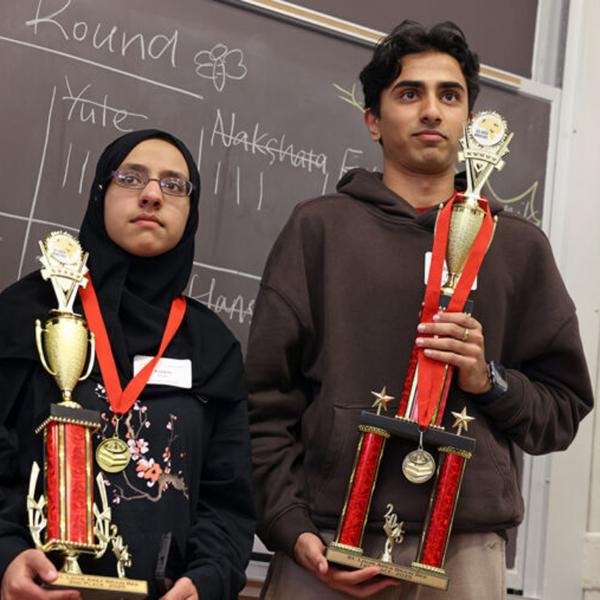Dr. Jonathan Losos grew up in St. Louis, MO, where his love of science and lizards began at an early age. Inspired by an episode of Leave it to Beaver about a pet alligator, Jonathan begged his parents for a pet caiman, a smaller species of crocodilian, at age 11. He wound up with not one, but two caimans. The fascinating creatures spurred his interest in herpetology, which led him to a lifelong career in the study of behavioral and evolutionary ecology of Anolis lizards.
Jonathan spent his undergrad years at Harvard University followed by University of California- Berkeley, where he was housemates with now fellow Wash U Professor Allan Larson. Both received their PhDs in the Zoology program there. Jonathan moved on to University of California-Davis to complete his postdoc work in the lab of Tom Schoener where he began evolution experiments in nature. Schoener introduced lizards to 14 tiny islands in the Bahamas, where he intended to watch them go extinct, but instead and surprisingly they all survived. Jonathan thought this unintended outcome was an evolution experiment worth investigating, which showed how lizards bearing different characteristics were able to adapt to the environment in one way or another. He uses this approach to this day, now on Abaco Island in the Bahamas, where he conducts research every May. He studies Anolis lizards, a rich and diverse group of over 400 species that hail from the Caribbean Islands, Central and South America, and the Southeastern US.
Jonathan had his first appointment at Wash U as an assistant professor from 1992 to 2006, then joined the faculty at Harvard from 2006-2017. He is excited to be back at Wash U, where he has the opportunity to be part of a new and special partnership between Wash U, Missouri Botanical Garden and the St. Louis Zoo to create a new academic center dedicated to advancing the study of biodiversity. The Living Earth Collaborative will foster studies of all disciplines including behavior, ecology, evolution and conservation efforts. He is currently working on the challenge of getting his lab set up along with the Living Earth Collaborative and continuing his own research on lizard ecology and evolution in the field in the Bahamas.
He will be teaching Bio 1811: First-Year Opportunity: Research and Conservation in Zoos and Botanical Gardens in fall 2018. This new course will explore the work of MOBOT and STL Zoo through field trips designed to educate and excite freshman students about getting involved. A new summer internship program, also a result of the Living Earth Collaborative, offers paid internships for undergrads at MOBOT and STL Zoo. Applications will be reviewed every spring.
In his free time, Jonathan enjoys hiking, observing animals, playing ice hockey and spending time with his new kitten.
Learn more: Jonathan Losos's Research | Living Earth Collaborative
Course Spotlight
First-Year Opportunity: Research and Conservation in Zoos and Botanical Gardens (Bio 1811)
An introduction to the world of zoos and botanical gardens. Students will learn of the diverse and cutting-edge ways in which scientists and conservationists study the world’s biological diversity and work to conserve it. Taking advantage of two world-class institutions a short distance from the Danforth campus, the class will meet every week at an off-campus site (primarily the Saint Louis Zoo and Missouri Botanical Garden, but also several other institutions) to hear lectures from leading authorities at these institutions, as well touring facilities to see first-hand how research is conducted and how these institutions work to preserve endangered species. Students will write three short papers; each paper will be based upon a class lecture and its associated readings. Must be taken Credit/No Credit. Credit 2.0 units. Fall Semester, Fridays, 2:00PM-5:00PM.




